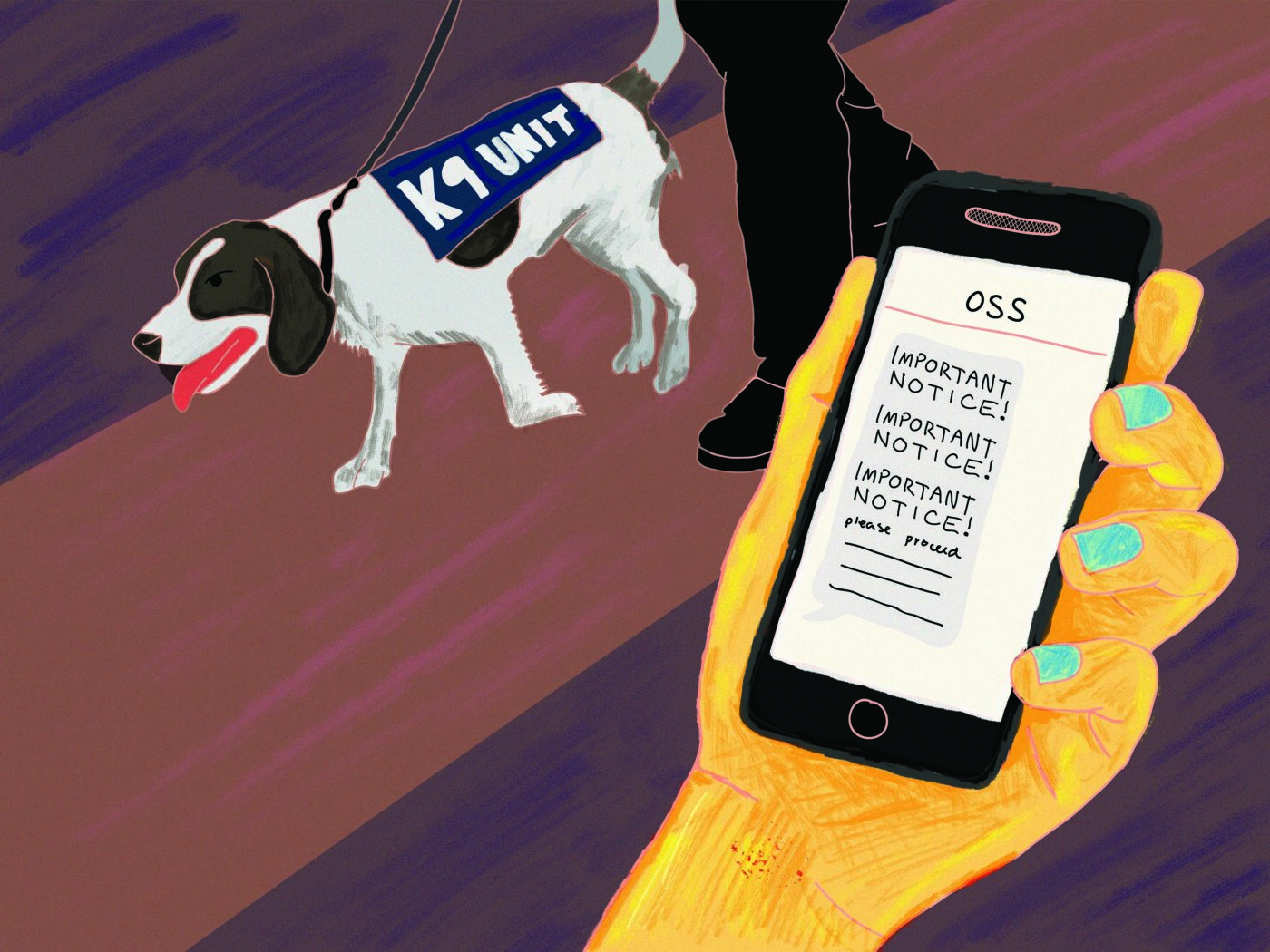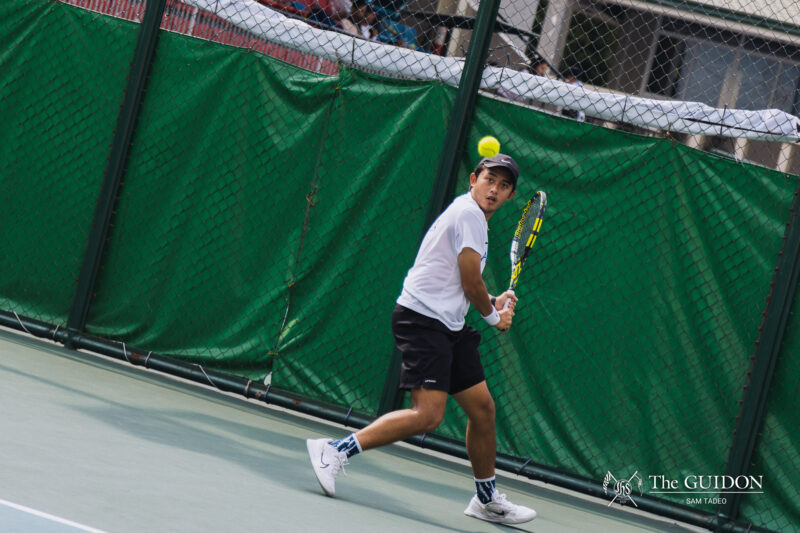President Rodrigo Duterte has certainly followed up on his promise to rid the country of drug addicts. The news is dominated by the drastic impacts of his ruthless anti-drug initiatives, and the polarizing criticism and reactions that follow them. And when the police were seen conducting surprise bag inspections in Katipunan establishments frequented by university students, it brought closer to home the realities that were once distant, only seen through a screen.
With the drug war now becoming a growing reality among Ateneans, it becomes more important than ever to examine and question how Ateneo, an educational institution that has been vocal about its stance on the drug war, addresses drug-related issues among its students.
A problem with many faces
At the core of the drug problem is the question of substance abuse: Why do people resort to drugs, and how do they eventually become drug dependent individuals?
Psychology professor Regina Hechanova, PhD, believes that substance abuse problems require an interdisciplinary approach. When asked about the psychological perspective towards substance abuse, Hechanova shares that they take a “biopsychosocial approach.” This underlines that the problem itself has multiple drivers including biological, psychological, and social factors.
From a biological perspective, Hechanova says that dependency can be explained by brain chemistry. There is a certain high one can get from using drugs, attributed to a spike in dopamine, that is hard to duplicate using natural sources.
A psychological perspective, on the other hand, claims that certain people may have the predisposition to use drugs. According to Hechanova, people who are risk-takers, have poor impulse control, and lack coping skills are inclined to use drugs. People who suffer from mental illnesses such as depression and bipolar disorder are also prone to drug usage because it helps them manage their moods. Stress is also a very relevant driver of drug use among students. Hechanova notes that students may be inclined to use drugs because of functionality; it gives the illusion of productivity and focus.
Perhaps a driver of drug usage more common to college students is the social aspect that stems from the surrounding culture and behavior of relevant social circles, such as one’s peers or family. Abusive family relationships, adverse childhood experience, and trauma induce drug abuse as it helps victims dull the pain. On the other hand, exposure from peers and seeking peer approval, or a sense of “belonging” is often the driver for first time users.
Office for Student Services (OSS) Director Cholo Mallillin shares that when students who tested positive on the random drug tests are brought in for comprehensive interviews, their common justification for drug usage is peer pressure, experimentation, and exposure. He notes that an area of the concern for OSS are organization parties, which are often held off-campus, but are still considered sanctioned activities of the school.
Because the drug problem’s roots are multifaceted in nature, Hechanova believes that a student should not get expelled should he or she get a positive result; instead, efforts should be made to help them. Her sentiments on helping students rather than exacting punitive measures is one shared by Dr. Ma. Henrietta Teresa O. dela Dela Cruz, director of the Loyola Schools Health Services (LSHS). “We’re not here to persecute people,” says Dela Cruz. “[We want to] provide assistance for root causes.”
No quick fix
For Hechanova, addressing the drug problem inevitably starts with prevention. “We have zero tolerance for drugs,” Dela Cruz states. LSHS has been proactive in its approach to raise awareness among students regarding drug abuse as a health issue. Dela Cruz shares that their anti-drug campaigns are student-driven because it is the youth who best speaks their own language. Aside from the required drug seminars for freshmen, they employ the help of student leaders and organizations to promote their campaign through original videos and testimonies, which they feel that students can relate to.
When preventive measures are taken and drug usage still occurs, Hechanova states that the next step is intervention. Mallillin shares that the university’s drug health program for students who test positive in the drug test is quite comprehensive. “The principle behind this is…let’s try to maintain you are drug free until you graduate, hopefully for the rest of your life.”
The university’s drug health program includes constant monitoring of its students, usually through routine drug testing. If the individual tests positive again in one of these tests, a heavier program is enacted. For Hechanova, this approach is considered rehabilitative, as it addresses the problems of individuals who are already drug addicts.
Other rehabilitative efforts the Loyola Schools employ include seeking treatment from outside rehab centers, as well as abuse counseling with accredited addiction doctors. Mallillin and Hechanova share a similar view on the intensity of rehabilitation efforts as they note that students are really forced to separate from their lives and their studies for long periods of time.
As for disciplinary measures, Mallillin emphasizes that they want students to be empowered to help themselves: “We try to leave out the discipline component as much as possible…And if students are cooperative, they turn out okay. We treat them as a success story.”
In fact, Mallillin shares that there have been more success stories than frustrations in the university’s drug program. He credits this to the reliability of the program’s staff who go far and beyond to address the students’ concerns, not only in drug usage, but as well as in their academics, family life, and peer relations.
Safe haven
Ateneo’s approach towards the drug problem is encouraging, given the current political climate surrounding the issue of drug abuse. “Iba na ang panahon ngayon (These are different times),” says Mallillin. “Swerte ka kung mahuli ka sa loob ng school. Eh paano kung nasa labas ka na nahuli? (You’re lucky if you get caught inside school. What happens if you get caught outside?)”
Mallilin adds that the Ateneo prefers to confine the treatment of students within school processes. The school is covered by the Commission of Higher Education’s Manual of Regulations for Private Higher Education (MORPHE), which states that it is the school’s primary duty to uphold the safety and welfare of students.
“When it comes to health issues of students, there is a mandate to uphold privacy and confidentiality,” says Mallilin. “We prefer to keep our processes internal.” The MORPHE gives the school discretion regarding health issues. “We have our own protocols,” he added, “and we have the right to take care of our own students.”
Mallillin also says that since the Duterte administration, there have been changes in the Dangerous Drugs Board’s (DDB) policy regarding drug testing. “There’s a measurement to determine the quantity of drugs in one’s system,” he explains. “The cutoff verifies whether the positive result was due to exposure [second hand] or actual usage.”
“There have been changes in the system of the DDB,” he says, “there’s no more cutoff, basta may substance kahit below cutoff (as long as there is substance, even below cutoff) the sample is treated as positive.” Nevertheless, Mallillin stresses the importance of upholding student confidentiality. “We take that [the new system of the DDB] with a grain of salt.”
Means to an end
Camille Elemia, a reporter for Rappler, states in an article that Duterte’s drug war has raised questions on the effectivity of the law. Elemia went on to say that “the Comprehensive Dangerous Drugs Act of 2002 looks good only on paper.”
“The law [RA 9165] is comprehensive, it is admirable that we’ve outlined it so clearly,” adds Dela Cruz. “The implementation is the problem.”
The bloody and drastic measures undertaken by the Duterte administration speak volumes on RA 9165’s effectivity, or lack thereof. These shortcomings raise questions not just on Philippine drug policy, but punitive, criminal approaches towards the drug problem as a whole.
Contrastingly, the value of the anti-drug policy of the Ateneo is seen through its prioritization of rehabilitation, and its treatment of drug abuse as a health problem. “We at the Psychology Department have always had a reformative and restorative approach rather than punitive,” says Hechanova. “Students are young, they’re still in the development stage, and they can outgrow this phase.”
Mallillin also points out that students have a crucial role to play in Ateneo’s anti-drug initiatives. Emphasizing their attempts to be more proactive in reaching out to students, he says, “Our approach is collaborative, [initiative] also has to come from the students.” He encourages Ateneans to help the community by reporting incidents of drug use, and if they are hesitant, he urges them to talk to people in charge. Ultimately, Mallillin tells students to be responsible for themselves and for one another: “Be mindful, you are part of a community, your actions and behaviors affect other people.”
In these uncertain times where drug users are oppressed and treated as criminals, the Ateneo deserves immense credit for their approach, one that considers their humanity as victims of substance abuse problems. “I want to be clear, we [at Ateneo] do this fairly. There’s a way to do this right without compromising a person’s worth. You have no right to devalue the worth [of a person],” stresses Dela Cruz.
Outside the walls of the Ateneo is a world where the label of “drug addict” is a death sentence. Within the walls, however, is a safe haven where the administration proactively seeks to help, rather than persecute, those in need. Essential in Ateneo’s rehabilitative approach towards the students suffering from drug abuse is its understanding of the drug problem as a health issue.
The 2016 Loyola Schools Student Handbook states that: “As an educational institution, the LS believes that punishment alone is an insufficient response, and emphasizes measures (both medical and disciplinary) that best enable wellness while continuously considering public welfare and the common good.” In a political climate where drug addiction puts one on a death list, empathy such as this is priceless.







